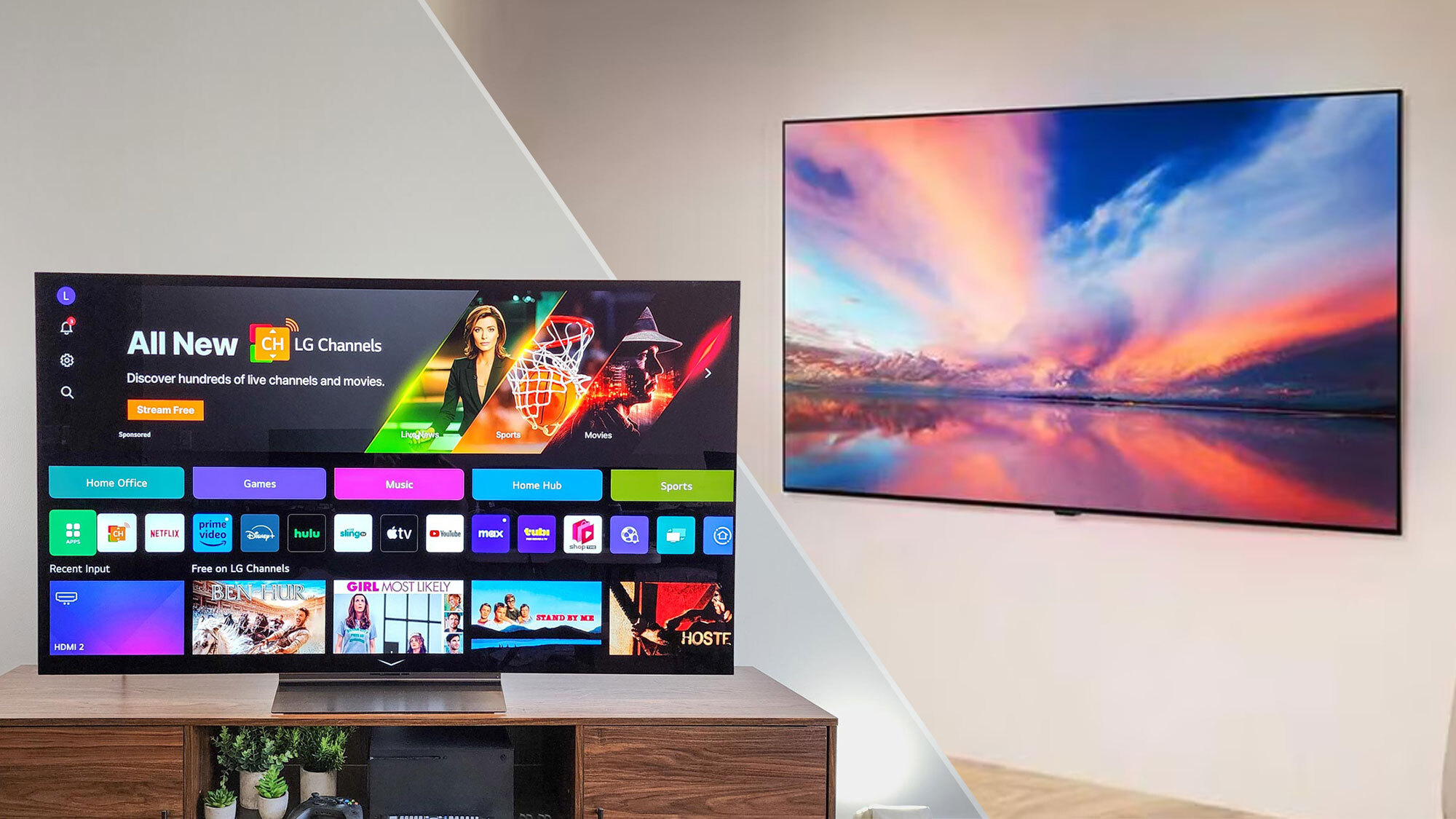
Shopping for the best OLED TV can be tough, especially when you’re picking between two similar-performing models with nearly identical specs. Such is the case with the LG C4 OLED and the all-new LG B4 OLED. The former has a higher price tag, but with a better processor on board, it might make you wonder if it’s worth shelling out extra for the C4.
That’s where we can help. We can dig through all the specs with you, pull out the key differences between the models and help you decide which of these two OLED TVs is worth your hard-earned money.
The LG C4 OLED has the better processor — which is going to translate to higher brightness and color accuracy — but the B4 OLED is going to be a bit more cost-effective.
That being said, there are five main differences to keep in mind when looking at these two models. The LG C4 OLED has the better processor — which is going to translate to higher brightness and color accuracy — but the B4 OLED is going to be a bit more cost-effective. Also worth considering are the C4’s better gaming chops and superior sound quality. The B4 OLED is, of course, a bit less expensive and, technically, a few months newer as well.
Still not sure which OLED to go for in 2024? Here are the five main differences between two of the best TVs we’re going to get this year.
LG C4 OLED vs B4 OLED: Specs compared
| LG C4 OLED | LG B4 OLED | |
|---|---|---|
| Sizes | 42", 48", 55", 65", 77", 83" | 55", 65", 77" |
| Ports | 4 HDMI 2.1 | 4 HDMI 2.1 |
| Resolution | 3,840 x 2,160p | 3,840 x 2,160p |
| HDR | HDR10, HLG, Dolby Vision | HDR10, HLG, Dolby Vision |
| Smart TV software | Web OS 24 | Web OS 24 |
| ATSC 3.0 support? | No | No |
| Processor | α9 AI Processor 4K Gen7 | α8 AI Processor 4K |
Difference #1: It’s all about the processor
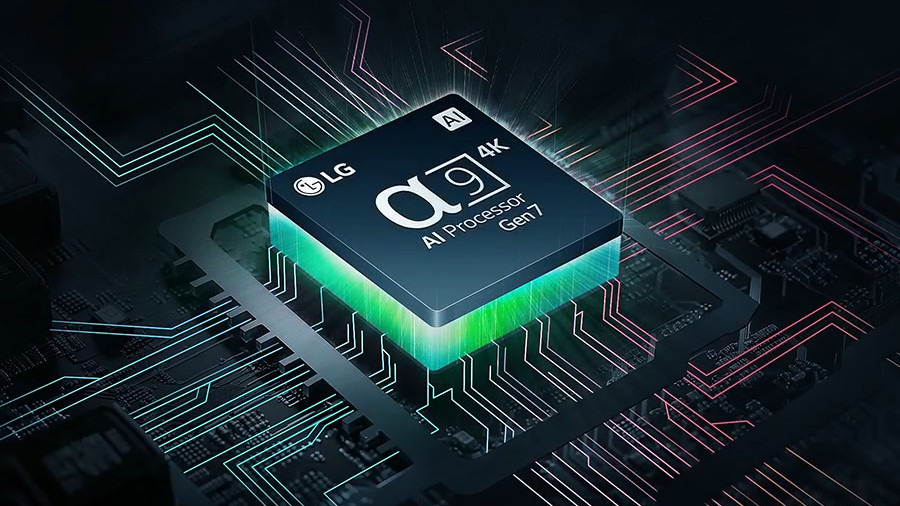
When looking at these two OLED TVs, you’ll see that they share so much in common. They both come ready to play the same HDR formats — HDR10 and Dolby Vision — and support Dolby Atmos audio. They both have four full-spec HDMI 2.1 ports on the back. They both have compatibility with the same smart home platforms, including LG’s own ThinQ system and use the latest version of LG’s smart TV system, webOS 24.
So where are the differences here? It's all about the processor.
The LG C4 OLED uses the α9 AI Processor 4K Gen7 while the B4 OLED uses a lower-powered α8 AI Processor 4K. Just like a processor powers all the fundamental processes on a PC, TV processors are responsible for everything from upscaling and motion processing to color accuracy and how fast applications load when navigating the user interface. In short, they’re incredibly important to how a TV functions, and the C4 OLED uses the better of the two.
Difference #2: The C4 is going to be the better performer
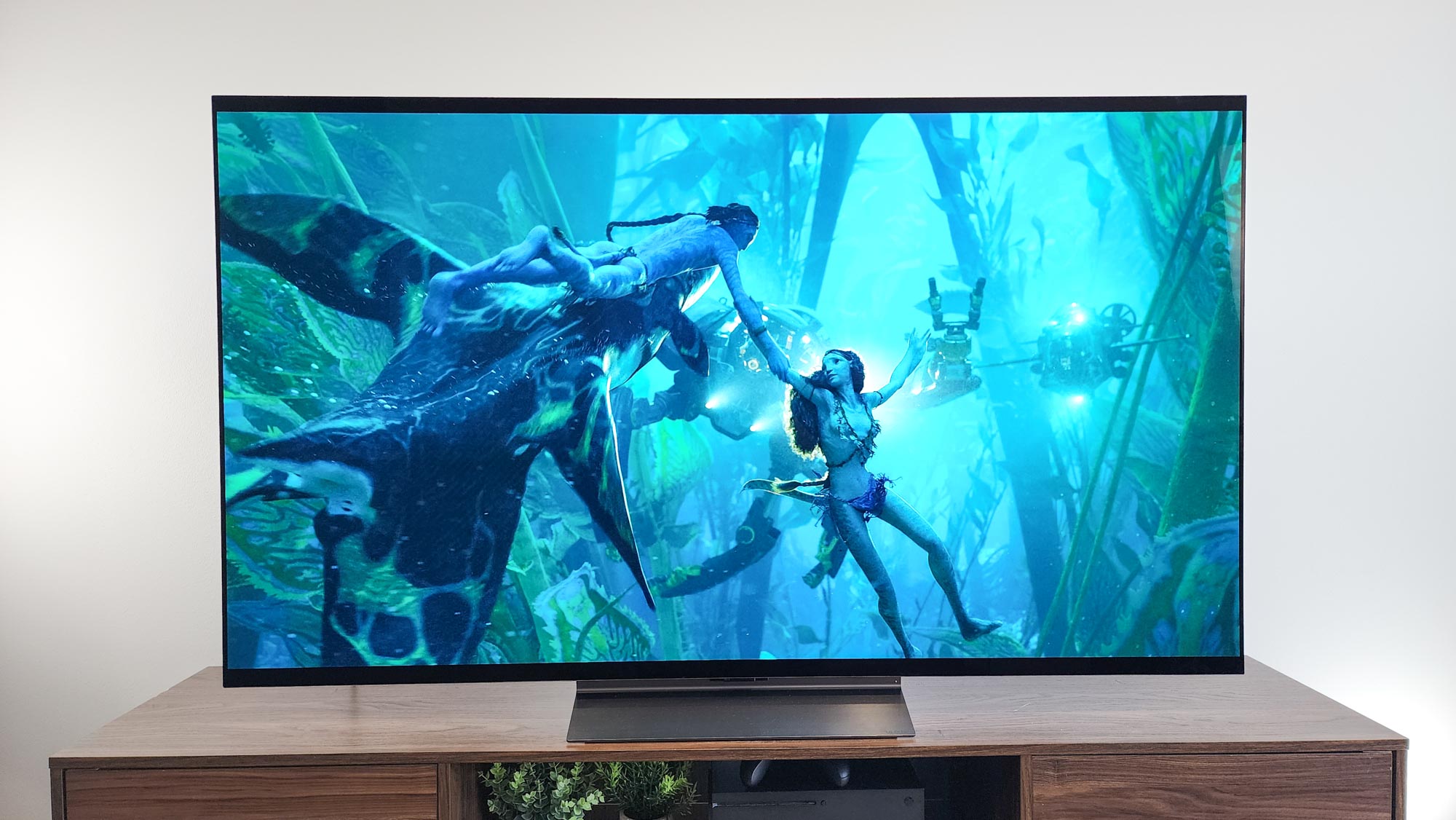
Because the C4 OLED has the better processor, you can expect better performance from the C4. While we don’t have the test data from the LG B4 OLED on hand right this second — remember this TV only launched on June 17, four days before this article was written — we have both historical data on how the B-Series has stacked up against the C-Series to go off of, and we have test data from the LG C4 OLED we can look at.
| LG C4 OLED | LG C3 OLED | LG B3 OLED | |
| Cost for a 65" TV | $2,099 | $1,599 | $1,899 |
| SDR Brightness (10%, in nits) | 296 | 237 | 236 |
| Delta-E (lower is better) | 1.8201 | 1.3908 | 1.8943 |
| Rec. 709 Gamut Coverage | 98.9136 | 99.0904 | 99.9724 |
| HDR Brightness (10%, in nits) | 1049 | 820 | 635 |
| UHDA-P3 Gamut Coverage | 98.15 | 98.98 | 99.07 |
| Rec. 2020 Gamut Coverage | 72.27 | 73.77 | 73.87 |
| Input Lag (ms) | 12.9/9.2 (Boost) | 12.9/9.1 (Boost) | 12.7/10.1 (Boost) |
So there's a lot going on in the chart above. In some metrics, the LG C4 OLED appears to perform worse than its predecessor, the LG C3 OLED, but it's important to keep in mind that a percentage point or two isn't going to make a massive difference in picture quality.
Instead, the key differences to look at here are the peak brightness data and color accuracies. The C-Series has always had higher peak brightness — crucial for preventing clipping in bright HDR details — while retaining better color accuracy right out of the box. While we don’t have the testing data for the B4 OLED right this second, we’re very much expecting to see similar differences in performance between this year’s B4 and C4 models.
Difference #3: No 144Hz gameplay or AMD FreeSync on the B4 OLED
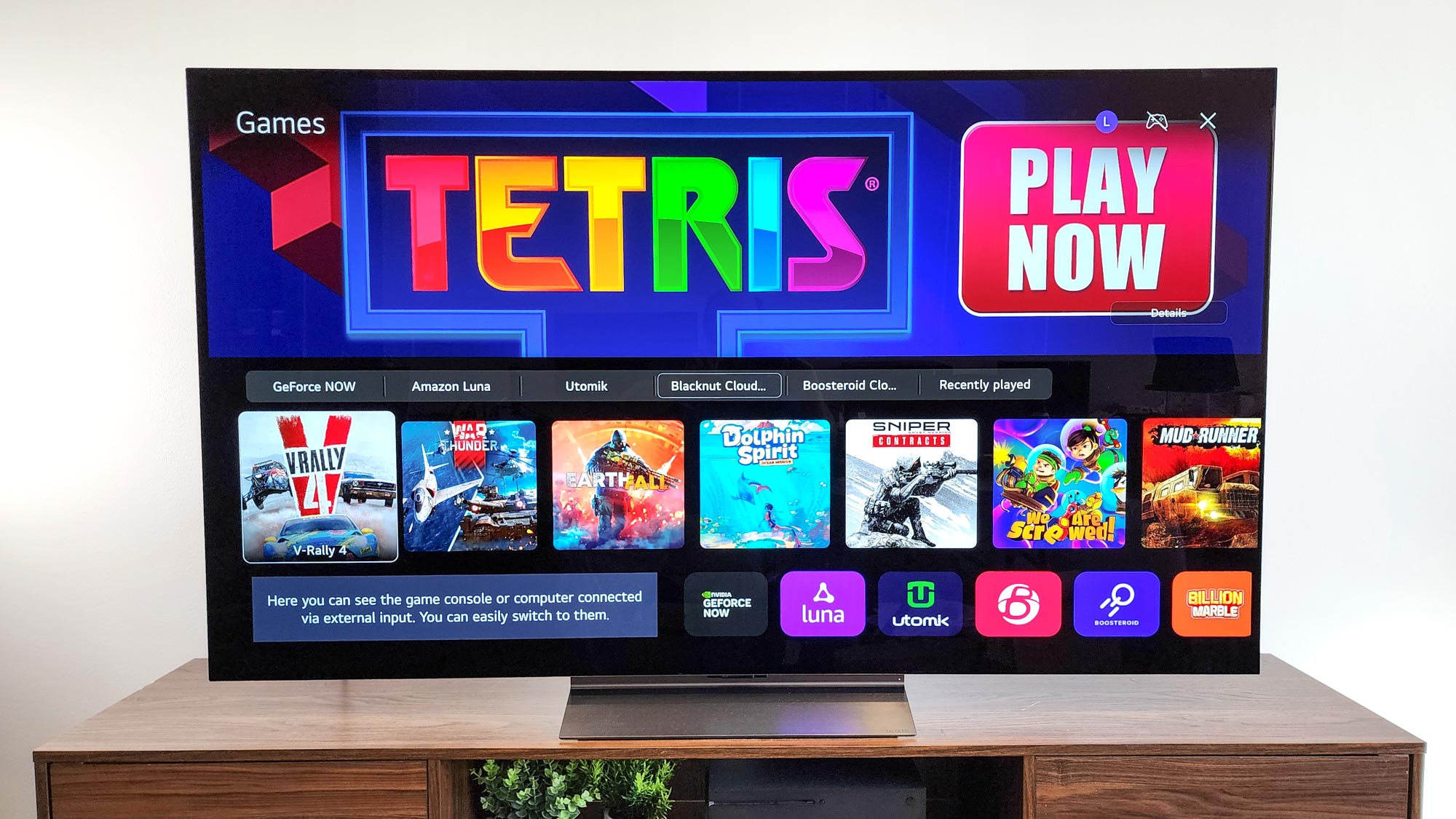
Setting aside test data for a second, a deeper dive into the B4's specs sheet available on LG’s website shows us a few key missing specs on the B4 OLED — two of which are going to be highly disappointing for gamers who want to buy the B4 as a gaming monitor.
Unfortunately, as far as I can tell, there’s no 144Hz support on the B4 like there is on the C4 OLED. Both TVs are 120Hz native resolutions, but the C4 can reach up to 144Hz while the B4 cannot. Also missing from the LG B4’s technical specs section is support for AMD FreeSync Pro, a VRR feature that can be found on the C4 OLED.
For console gamers, neither of these technologies matter — as neither the Xbox Series X nor PS5 can output games at 144Hz or use AMD FreeSync — but if you plan on using this as a gaming monitor, it’s worth knowing that the C4 OLED is the better equipped of the two.
Difference #4: Better audio on the LG C4 OLED
Let's just get this right out of the way up top: Neither the LG C4 nor the LG B4 is going to have room-filling, wall-shaking audio right out of the box. Whichever TV you end up choosing, be prepared to buy one of the best soundbars or speaker systems to go with it if you want a full cinematic experience.
The caveat here is that, on paper, the LG C4 has the more powerful system with a 40W 2.2-channel system up against the LG B4's 2.0-channel 20W system. Both TVs offer Dolby Atmos audio both via built-in speakers and via passthrough, but you're going to get a bit better sound quality with the C4 over the B4.
Difference #5: But the B4 is newer and cheaper
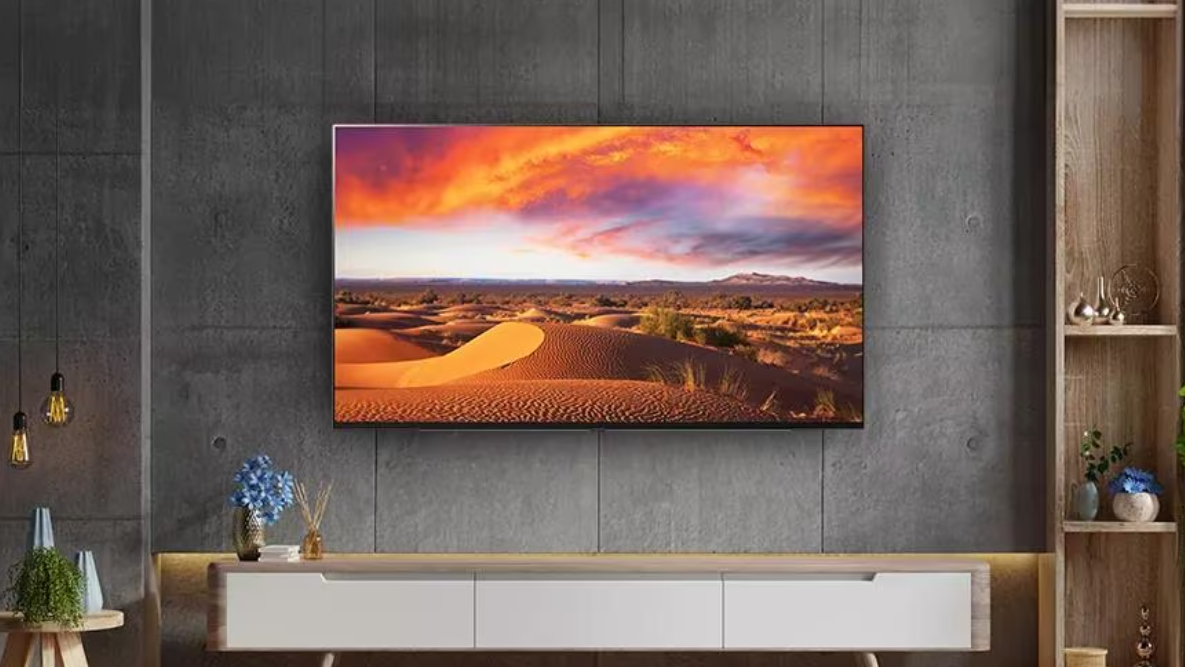
The last difference is obvious, but it needs to be said again before we wrap this up: The LG B4 OLED is technically the newer of the two TVs and, for the rest of its life, will be cheaper than the LG C4 OLED.
Right now, the 55-inch LG C4 OLED is around $300 more than the B4 OLED, while the 65-inch is $200 more. I very much doubt that gap will always be the same — especially if they don’t go on sale at the same time — but there’s almost no chance you’ll be able to find a brand-new LG C4 OLED for less than a brand-new LG B4 OLED.
LG C4 OLED vs LG B4 OLED: Outlook
So, who wins between the LG C4 OLED and LG B4 OLED? On performance, we've got to give it to the LG C4 OLED. It's going to get brighter, sound better and play games both smoother and at higher frame rates than the LG B4 OLED.
That being said, if you only plan on watching shows and movies with it and the extra $200 you save on the sticker price would allow you to buy a better sound system, then the LG B4 delivers most of the same key features for a few hundred less.
Finally, we're never going to pass up a chance to recommend the older, but still very-good-by-any-metric LG C3 OLED. It's not the latest and greatest model from LG, but we still believe it's one of the best OLED TVs on the market, and is very much worth picking up at its new reduced price point.
More from Tom's Guide
Sign up to get the BEST of Tom's Guide direct to your inbox.
Get instant access to breaking news, the hottest reviews, great deals and helpful tips.

Nick Pino heads up the TV and AV verticals at Tom's Guide and covers everything from OLED TVs to the latest wireless headphones. He was formerly the Senior Editor, TV and AV at TechRadar (Tom's Guide's sister site) and has previously written for GamesRadar, Official Xbox Magazine, PC Gamer and other outlets over the last decade. Not sure which TV you should buy? Drop him an email or tweet him on Twitter and he can help you out.
